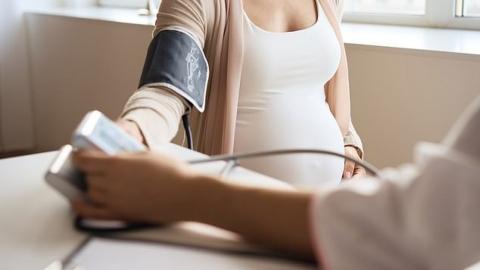Surviving Eclampsia - The Story of Athena

Eclampsia is a serious medical condition that can affect pregnant women.
Pre-eclampsia and eclampsia cause 15% of all preterm births and 10-15% of all maternal deaths worldwide. This is equivalent to 63,000 deaths per year.
The condition is associated with decreased blood flow to the placenta and inadequate oxygen and nutrient delivery to the fetus. Symptoms include high blood pressure and protein in the urine. Treatment for preeclampsia includes medication and bed rest, but hospitalization may be required for pre-existing conditions such as diabetes.
Athena’s story - How she survived Eclampsia
Athena woke up early one Tuesday morning feeling like something was very wrong. She was 32 weeks pregnant and could tell her husband she was not feeling well, but when he asked what's wrong all she managed to say were garbled words. When her husband came into view of his wife, they could not see each other because she lost her sight in an instant.
When Athena was taken to the hospital, doctors detected a high blood pressure of 168/104 and she was having seizures. After the necessary medical tests, the doctors diagnosed that Athena had developed eclampsia and that she and the baby were in danger.
Doctors managed to stabilize her quickly. Although her condition was undiagnosed and deteriorated rapidly, she had no brain damage from the seizure, as the MRI showed.
Preeclampsia is difficult to diagnose
Doctors must always watch for signs of preeclampsia because there is no way to predict who will develop the condition.
Early detection can help prevent dangerous late effects, such as liver and kidney damage or seizures.
Symptoms are often difficult to diagnose because they mimic other effects of pregnancy on a woman's body - such as nausea, vomiting and rapid weight gain.
Standard diagnosis includes detection of high blood pressure after 20 weeks of pregnancy and protein in the urine at any time during pregnancy; if either of these conditions is present, it may indicate an increased risk for developing preeclampsia.
Pre-eclampsia, if left untreated, will lead to eclampsia, the onset of convulsions and the patient may fall into a coma.
Eclampsia is an experience that can change your life
Athena, who first developed eclampsia a little over two years ago, admits it was a pretty traumatic experience. She wishes her doctor had warned her earlier and acted to avoid this drastic event in her life. However, seeing her son get better, grow stronger, and grow into a talkative boy was a healing experience for her.
Symptoms of Preeclampsia
- nausea
- vomiting
- rapid weight gain
- headaches
- blurred vision
- swelling of the hands, feet, or face
- pain in the upper abdomen
- high blood pressure
- protein in the urine
Preeclampsia symptoms are often confused with other pregnancy problems such as gestational hypertension. One of the biggest problems is that the severity of preeclampsia cannot be predicted.
The best treatment for preeclampsia is early diagnosis, so no pregnant woman should miss regular appointments with her obstetrician.

